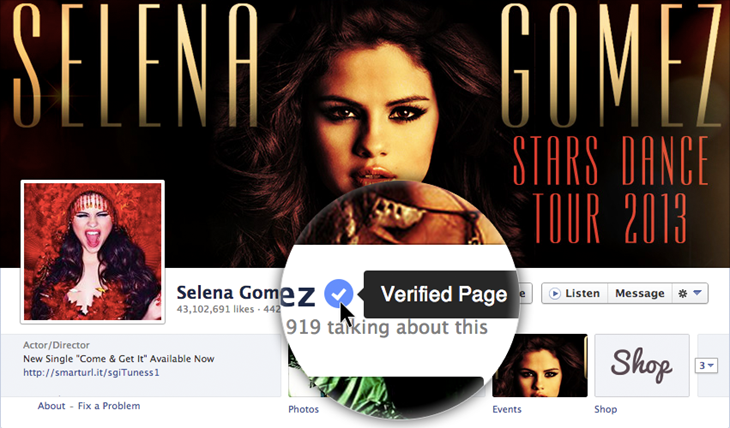
“This update makes it even easier for subscribers to find and keep up with journalists, celebrities and other public figures they want to connect to,” a Facebook representative told VentureBeat when the verified profiles were originally announced. It should also make it harder for scammers to create fake Facebook accounts for celebrities and charities in order to solicit illegitimate donations.
[aditude-amp id="flyingcarpet" targeting='{"env":"staging","page_type":"article","post_id":746917,"post_type":"story","post_chan":"none","tags":null,"ai":false,"category":"none","all_categories":"business,media,social,","session":"A"}']Verified pages and profiles will be shown with a little blue checkmark, indicating that Facebook has investigated and determined that the account is genuine, not a parody, and legitimately created by the person or brand it claims to represent.
To verify accounts, Facebook said you’ll need to submit government-issued photo ID, which Facebook promises to delete immediately after verification:
AI Weekly
The must-read newsletter for AI and Big Data industry written by Khari Johnson, Kyle Wiggers, and Seth Colaner.
Included with VentureBeat Insider and VentureBeat VIP memberships.
Interestingly, Facebook says it will proactively reach out to verify accounts, but there is no mechanism to request verification. Instead, Facebook recommends that celebrities or public figures who believe that they are being impersonated should report a fake account.
Facebook’s verified accounts follow Twitter, which created verified accounts in 2009, by about four years. Google+ launched verified accounts very early in that social network’s history, back in 2011.
Image credit: Facebook
VentureBeat's mission is to be a digital town square for technical decision-makers to gain knowledge about transformative enterprise technology and transact. Learn More